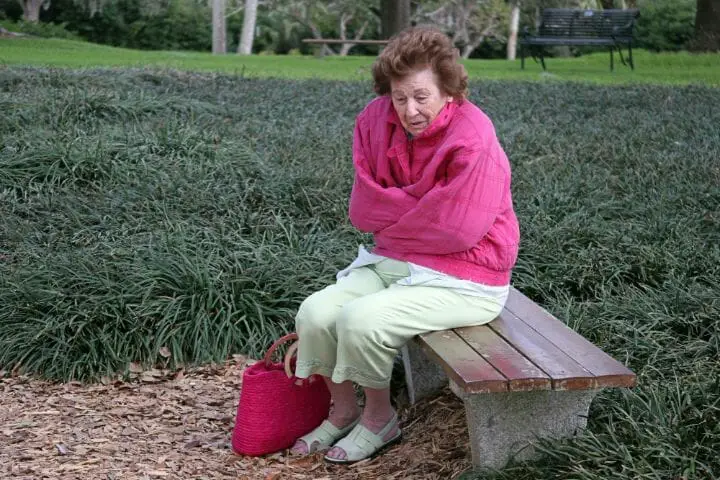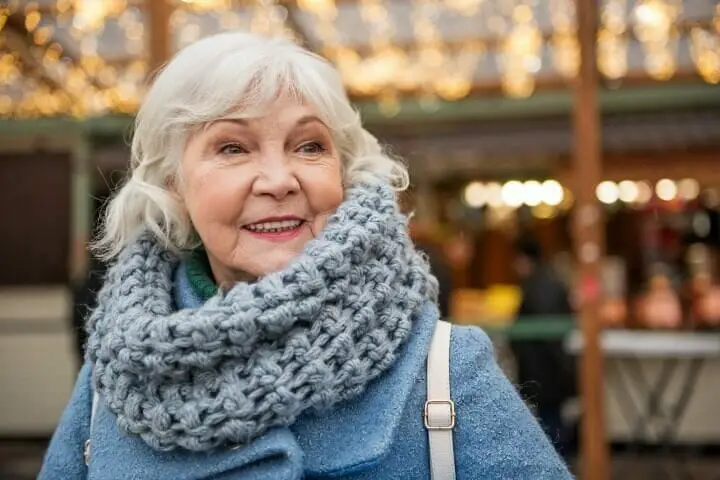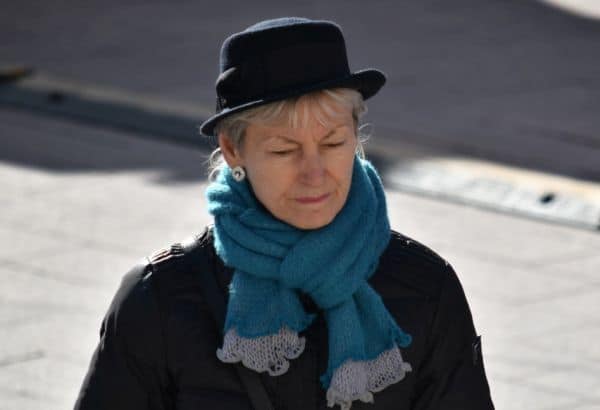
Do you find yourself reaching for an extra layer of clothing, even when others around you are perfectly comfortable? If so, you’re not alone. As we age, it’s common to feel colder than we used to. Why is this? Here are ten reasons why older adults tend to feel more chilly than their younger counterparts:
Age-related changes in body composition
As we age, our bodies go through a variety of changes. One of the most significant is a shift in body composition. We tend to lose muscle mass and gain body fat as we get older. This change impacts our body’s ability to regulate temperature, which can have a range of effects on our health.
1. Decreased muscle mass
Muscles produce heat as they contract, so a decrease in muscle mass means our body has less natural warmth to rely on. This can make us feel colder than we used to, especially in our extremities like hands and feet. It can also make it more difficult to perform physical tasks that require strength and endurance, such as carrying groceries or climbing stairs.
However, it’s important to note that muscle mass can be maintained or even increased through regular exercise, particularly strength training. This can help mitigate the effects of age-related muscle loss and keep us feeling strong and capable.
2. Increased body fat
Body fat is an insulator, which can be beneficial in cold weather. However, too much body fat can make it more difficult for our internal organs to generate heat and keep us warm. This can lead to feelings of coldness and discomfort, particularly in areas of the body with less fat, such as the hands and feet.
In addition, excess body fat has been linked to a range of health issues, including heart disease, diabetes, and certain types of cancer. Maintaining a healthy body weight through a balanced diet and regular exercise can help reduce these risks and improve overall health.
It’s also worth noting that body fat distribution can change as we age, with a tendency for more fat to accumulate around the abdomen. This type of fat, known as visceral fat, is particularly harmful to health and has been linked to a range of chronic conditions. Regular exercise and a healthy diet can help reduce visceral fat and improve overall health.
Slower metabolism
Another factor in feeling colder as we age is our metabolism. As we get older, our metabolism slows down, meaning we burn fewer calories. This reduced calorie-burning can make it more difficult for our bodies to generate enough heat to stay warm.
Metabolism is the process by which our bodies convert food into energy. It’s like a furnace that burns fuel to produce heat. As we age, this furnace starts to slow down, and we don’t burn as many calories as we used to. This means we have less fuel to produce heat, and we may feel colder as a result.
3. Reduced calorie burning
Our metabolism slows down by about 2% per decade, which means we’re burning fewer calories and producing less heat than we used to. This can be especially noticeable in older adults who are less physically active than they used to be. When we exercise, our bodies burn more calories and produce more heat, which can help us stay warm. But if we’re not active, we may not be generating enough heat to keep our bodies at a comfortable temperature.
It’s important to note that everyone’s metabolism is different, and there are many factors that can influence how many calories we burn. Genetics, diet, and lifestyle all play a role in our metabolism, so it’s not always a straightforward process.
4. Lower body temperature regulation
In addition to burning fewer calories, our ability to regulate body temperature also declines as we age. Our bodies are less efficient at maintaining a consistent internal temperature, which can leave us feeling chilly.
When we’re cold, our bodies have several ways of trying to warm up. We might shiver, which generates heat by contracting our muscles. We might also constrict our blood vessels, which reduces blood flow to the skin and helps to conserve heat. But as we age, these mechanisms become less effective. Our muscles may not be as strong, so we can’t generate as much heat through shivering. And our blood vessels may not be as responsive, so we can’t conserve heat as effectively.
Overall, there are many reasons why we may feel colder as we age. Our metabolism slows down, our bodies produce less heat, and our ability to regulate body temperature declines. But there are also things we can do to stay warm, such as staying active, dressing in warm layers, and keeping our homes at a comfortable temperature.

Circulatory system changes
Our circulatory system plays a crucial role in regulating body temperature. As we age, changes in our circulatory system can make it harder to stay warm.
The circulatory system is responsible for transporting blood, oxygen, and nutrients throughout the body. As we age, the blood vessels in our body can become less elastic and more constricted, which can lead to a number of health issues. Poor blood circulation is one of the most common problems associated with aging.
5. Poor blood circulation
Aging can lead to reduced blood flow to our extremities, like our fingers and toes. This can leave us feeling colder in those areas, even if the rest of our body is warm enough. Poor blood circulation can also lead to a number of other health issues, including high blood pressure, heart disease, and stroke.
One of the best ways to improve blood circulation is through regular exercise. Exercise helps to strengthen the heart and blood vessels, which can improve blood flow throughout the body. Eating a healthy diet and maintaining a healthy weight can also help to improve blood circulation.
6. Blood vessel constriction
As we age, our blood vessels may become less elastic and more constricted. This constriction can limit blood flow and make it harder to stay warm. Blood vessel constriction can also increase the risk of heart disease and stroke.
There are a number of factors that can contribute to blood vessel constriction, including smoking, high blood pressure, and high cholesterol. Quitting smoking, managing blood pressure, and maintaining a healthy diet can all help to improve blood vessel health and reduce the risk of blood vessel constriction.
In addition to these lifestyle changes, there are also a number of medications and treatments that can help to improve blood circulation and reduce the risk of circulatory system changes. Your healthcare provider can help you determine the best course of action based on your individual needs and health status.
Reduced activity levels
As we get older, it’s natural to slow down and become less active. While this is a normal part of aging, it can also impact our body’s ability to stay warm.
Reduced activity levels can be caused by a variety of factors, including retirement, health issues, and changes in lifestyle. Unfortunately, less physical activity means less heat production, which can leave us feeling colder.
7. Less heat production
Physical activity generates heat, so it makes sense that less activity means less heat production. This can be especially noticeable during the winter months, when the cold weather can make it difficult to stay warm.
However, it’s important to note that even light exercise can help boost heat production and keep you feeling warmer. Simple activities like going for a walk or doing some gentle stretching can go a long way in helping you stay comfortable.
8. Sedentary lifestyle consequences
In addition to reducing heat production, a sedentary lifestyle can also have other consequences that contribute to feeling cold. For example, sitting for long periods of time can lead to poor circulation, which can make it harder for your body to distribute heat.
Furthermore, a lack of physical activity can lead to decreased muscle mass, which can also impact your body’s ability to stay warm. Muscles generate heat, so having less muscle mass means less heat production.
To combat these issues, it’s important to incorporate regular physical activity into your daily routine. This can include anything from going for a walk to taking a yoga class to lifting weights at the gym. By staying active, you can help keep your body warm and healthy.

Hormonal changes
Hormonal changes are another factor that can impact how warm or cold we feel.
9. Menopause and hot flashes
For women, menopause can cause hormonal shifts that lead to hot flashes. While hot flashes can be uncomfortable, they can also leave women feeling warmer than they would otherwise.
10. Thyroid function decline
For both men and women, declining thyroid function can impact our ability to regulate body temperature. Thyroid hormones play a crucial role in metabolism and heat production, so a decline in thyroid function can leave us feeling colder.
Conclusion
There are a variety of factors that can contribute to feeling colder as we get older. Age-related changes in body composition, declining metabolism and circulation, and hormonal shifts can all impact our body’s ability to stay warm. While feeling chilly isn’t necessarily a cause for concern, it’s essential to pay attention to our body’s signals and take steps to stay warm and comfortable, especially in cold weather.
